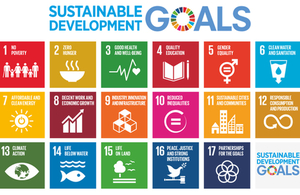Press release: £3,000 penalty for illegal waste carrier
A 35-year-old man from Bradford has been ordered to pay £3,116.80 after pleading guilty to operating as an illegal waste carrier in a case heard at Nottingham Magistrates Court.
Caught in road-stop sting
Andrew Clarke of Southcroft Avenue, Birkenshaw, Bradford, was stopped at a multi-agency road stop operation on the A614 at Ollerton, Nottinghamshire, on 25 May 2018. A search of his transit van revealed he was carrying waste carpet.
Environment Agency officers then carried out a check on the public register, which showed the defendant did not have the required waste carrier registration. He was given 10 days to obtain the necessary paperwork or face prosecution.
Failed to register
However, a subsequent systems check by Environment Agency officials in August 2018 showed the defendant had failed to register as a waste carrier in his name within the 10-day period. He had registered in the name of a partnership 20 days after the offence.
The case was heard at Nottingham Magistrates on 2 January 2019. He was fined £300 and ordered to pay costs of £2,816.80.
Penalties over £3,000
The defendant, who had been fitting out a shop in Arnold, Nottingham, told officials that he was not being paid to remove the waste and that he was not aware he needed to be registered.
A spokesperson for the Environment Agency said:
This case demonstrates how seriously we take illegal waste crime. We take robust enforcement action against those who deliberately ignore the law to protect communities and the environment.
The management and disposal of waste as a commercial enterprise is subject to a strict statutory regime and the relevant piece of legislation for the purpose of this case is the Control of Pollution (Amendment) Act 1989. The act makes it a criminal offence for a person to transport controlled waste to or from any place in the United Kingdom, with a view for profit, if they do not possess the necessary Waste Carrier Licence.

